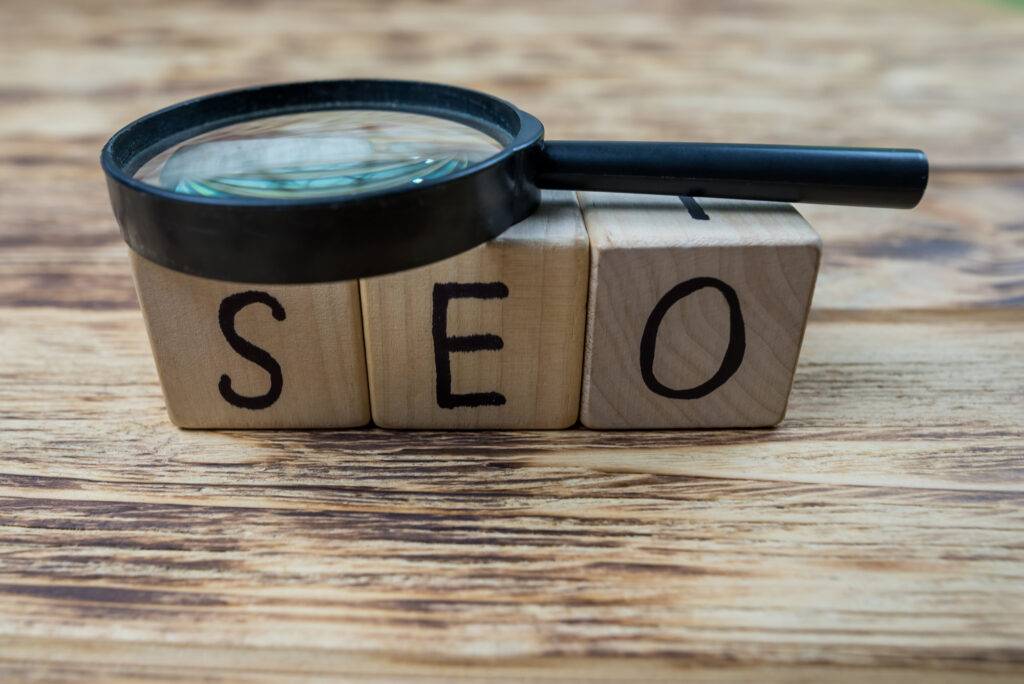Optimising Your Funnel for Higher Quality Solar Sales Leads
In the competitive solar industry, the quality of solar sales leads can make or break a company’s success. Optimising your sales funnel to attract and convert high-quality solar leads is essential for maximising efficiency and boosting conversion rates. This guide explores effective strategies to enhance the sophistication of your lead management process.
By fine-tuning your approach to lead generation, nurturing, and conversion, your solar business can achieve a higher return on investment, ensuring sustainable growth and a strong market position in the evolving energy sector.
Understanding the Solar Sales Leads Funnel
Effective lead flow management and conversion maximisation in the solar sector depend heavily on a well-structured sales funnel. When potential clients first learn about your solar solutions, the awareness stage of the funnel usually starts. Interest is greatly increased in this case by extensive marketing initiatives, including social media ads, educational webinars, and educational blog articles.
More focused communications, such as individualised emails, thorough product brochures, and client endorsements, support potential consumers as they enter the interest and contemplation phases. Creating value and proving how your solar solutions satisfy their particular needs are the goals of this stage.
Leads are prepared to be converted into customers at the decision stage. Direct contact techniques, like consultations, cost-benefit studies, and customised financing solutions, are now essential to resolve the last concerns and ease the purchase choice.
At last, the real solar panel purchase and installation complete the action stage. During this stage, making sure the client has a seamless and positive experience can result in recommendations and return business, converting new clients into ardent supporters.
Solar enterprises may greatly increase conversion rates and optimise lead handling by fully comprehending each funnel stage and putting strategies designed for each into practice.
Enhancing Lead Quality Through Targeting
Attracting top-notch solar sales leads depends critically on targeted marketing efforts. These efforts are centred on determining and involving prospective clients who, according to particular demographic, regional, and behavioural factors, are most likely to convert. Your marketing efforts become more effective and efficient when you target the correct audience.
Analysing your current clientele will help you find common traits and purchasing patterns. Using marketing analytics software, you can divide your audience according to age, geography, property ownership, energy usage habits, and environmental awareness. This data-driven strategy ensures that people who can afford to invest and are interested in solar solutions see your marketing materials.
Having identified your target market, you should then customise your advertising and content to speak to their particular requirements and issues. Because it speaks to the recipient, personalised marketing is significantly more successful than generic pitches, raising interaction and the possibility of a favourable reaction. Advertisements stressing the cost-saving advantages of solar energy, for example, may be more appealing to homeowners in sunny locations than to ecologically concerned consumers.
You may produce leads more likely to move through the sales funnel and become paying clients by honing your targeting techniques and emphasising quality over quantity. In addition to raising your conversion rates, this maximises your marketing spend.
Nurturing Leads
In businesses like solar energy, where the decision-making process can be complicated and well-considered, effective lead nurturing is essential to turning interest into sales. Throughout the buying process, nurturing leads means keeping and strengthening relationships with prospective clients by giving them useful information and assistance to progressively bring them to a purchase.
Email marketing is one of the best instruments for lead nurturing. With the right content—customer success stories, the newest industry trends, in-depth guides on solar benefits, and special offers—tailored email marketing can keep your solar sales leads engaged. Every contact has to be valuable and build upon the previous, progressively resolving possible issues and informing the lead about the benefits of selecting your solar solutions.
Retargeting is another effective tactic that entails contacting people who have interacted with your brand but have not yet converted. Retargeting these leads with internet advertisements might help to keep your brand in front of their minds and nudge them to reconsider their choice. Based on the precise interactions the potential consumer has had with your company, including browsing a certain homepage or downloading a specific file, retargeting should be customised.
Furthermore, especially when leads approach the decision stage, in-person meetings or demos can be quite successful. Personalised guidance and clear responses to any technical or financial queries made possible by these exchanges help allay concerns and boost the lead’s faith in your offering.
Your company will remain top of their minds when they are ready to make their solar investment if you methodically nurture your leads with helpful information and individualised interactions.
Utilising Technology to Enhance Lead Conversion
Maximising lead conversion rates in the digital world of today requires technology use. Through their ability to help solar companies better manage their leads, advanced Customer Relationship Management (CRM) systems can be quite helpful. CRMs let you divide leads according to their behaviour, purchase history, and degree of engagement, which makes customised follow-up plans more likely to convert.
Lead nurturing can be greatly improved by automation technologies as well. Automated email marketing campaigns, for instance, can guarantee that prospective clients receive timely and pertinent information that keeps them interested without requiring continuous manual work. In a similar vein, chatbots on your website may respond quickly to often-asked questions, sustaining interest and gathering lead data around the clock.
Predictive analytics can even completely change the game. Predictive models estimate how likely a lead will convert by examining historical lead data and customer interactions. This improves the general effectiveness of the sales process by enabling solar companies to give high-potential leads priority and better manage resources.

Combining these technical resources not only saves time and labour but also offers a more in-depth understanding of lead behaviour, which facilitates better strategy optimisation and decision-making. Solar enterprises can improve their lead conversion capabilities and eventually increase sales and the returns on their marketing expenditures by using technology to its full potential.
To improve solar sales leads’ quality and conversion rates, your sales funnel must be optimised. Targeted tactics, connection building, and cutting-edge technology can all help solar enterprises greatly enhance their lead management procedures. Together with expediting lead generation and the conversion process, these initiatives guarantee a greater return on marketing expenditures.
Competitive advantage and long-term company expansion will depend on keeping an eye on efficient sales funnel optimisation as the solar market expands.
Solar Affiliate Marketing: A Beginner’s Guide to Getting Started
As the solar industry continues to expand, the opportunities for leveraging solar affiliate marketing also grow. This niche allows marketers to earn commissions by promoting solar products and services, aligning their passion for sustainability with potential revenue streams. For those new to this sector or looking to expand their affiliate marketing repertoire, this guide will navigate you through the initial steps to start your own solar affiliate marketing business effectively.
Introduction to Affiliate Marketing in the Solar Industry
Through its ability to pay commissions for endorsing goods or services from other parties, affiliate marketing has carved out a sizable niche in the field of digital marketing. This strategy translates into marketing solar panels, energy storage devices, and environmentally friendly solar accessories in the developing solar sector. The potential for solar affiliate marketing is growing along with the global focus on sustainable energy alternatives.
This special industry is driven by the rising public availability of solar technology as well as the rising need for renewable energy. In the solar sector, affiliate marketing is a great chance to earn money while taking part in environmental care. Affiliates are essential to the green energy revolution because they link customers with solar items that can lower energy bills and carbon footprints. As such, anybody hoping to have a significant influence in this important sector must grasp the workings and possibilities of solar affiliate marketing.
Choosing the Right Solar Products
In the world of solar affiliate marketing, selecting which solar items to advertise is essential. Successful affiliates concentrate on high-demand items that are also supported by respectable businesses that are well-known for their dependability and quality. Products like efficient solar panels, cutting-edge solar-powered electronics, and environmentally friendly home energy solutions frequently draw a wide range of buyers.
Working with solar firms that provide their affiliates with solid support is crucial. This covers marketing materials, a responsive affiliate management staff, and attractive commission schemes. Furthermore, the reputation of the business can have a big impact on the decisions of prospective clients to buy; thus, choosing partners who are renowned for their morals and client happiness is critical.
Evaluation of the items’ technological innovation and ecological effect can also improve your marketing since customers are choosing more and more ecologically friendly and cutting-edge solutions. Thus, selecting solar items with care can significantly affect the performance of your affiliate marketing campaigns and help to balance financial gain with environmental impact.
Setting Up Your Affiliate Platform
The foundation for starting a profitable solar affiliate marketing business is setting up your affiliate platform. Whatever the platform—a specialised blog, a thorough website, or several focused social media pages—it should be designed to produce and disseminate material that successfully draws in and interacts with prospective customers.
Your affiliate marketing efforts can be powerfully centred on a clean, user-friendly website. Here, it can work very well to include affiliate links with instructional solar energy material. Such material increases the visibility of your affiliate links through organic search and also helps to educate prospective clients about the advantages and developments in solar technology.
In this sense, search engine optimisation (SEO) is essential. Enhancing your content using SEO best practices guarantees it will appear higher in search engine results, reaching a larger audience. Targeted traffic to your website is greatly increased by researching and using keywords associated with solar products and energy solutions. In the very competitive solar sector, then, keeping an SEO focus when establishing your affiliate platform will greatly increase the effectiveness of your marketing campaigns.

Optimising Affiliate Offers in the Solar Industry
In the solar sector, optimising affiliate offerings calls for a strategic strategy where essential factors include negotiating advantageous agreements, knowing and using the details of commission arrangements, and guaranteeing product relevancy. Affiliate marketers need to learn how to interpret a variety of compensation structures that could include anything from paying per sale to providing incentives for leads or clicks. Selecting the appropriate model can make a big difference in your capacity to produce a steady income.
As you show that your platform is relevant and widely used, you may bargain for better terms with affiliate programs. Having a history of successful promotions and strong conversion rates will help you bargain for larger commissions or first-choice promotional chances. In the solar sector, where businesses are keen to increase their market reach through knowledgeable affiliates, such agreements are not unusual.
It’s also critical to have a thorough grasp of how solar products fit the interests of your audience and the material on your platform. Higher engagement and conversion rates might result from advertising products that speak to the practical demands of your audience when implementing solar energy or their environmental beliefs. Carefully choosing and optimising affiliate offerings according to these standards will help you succeed in the solar affiliate marketing industry overall as well as with the effectiveness of your campaigns.
Advanced Tracking and Analytics for Solar Affiliate Marketing
Your solar affiliate marketing plan will be improved and refined in large part by advanced tracking and analytics. Accurately monitoring each click, impression, and conversion is essential to knowing which aspects of your marketing plan are working well and which ones require development.
Putting strong tracking systems into place enables you to collect information on how people interact with your affiliate links and content. Patterns of consumer behaviour are shown by this data, including which products pique interest or what material increases interaction. With this knowledge, you can decide how to improve your marketing strategies, better customise your content, and increase your conversion rate overall.
Consistent examination of this data also aids in the identification of trends, such as seasonal variations in demand for particular solar products or technical developments that propel changes in the market. You can make use of these insights to predict market needs and modify your tactics appropriately if you maintain your knowledge and flexibility. This proactive strategy not only keeps your marketing efforts current but also optimises your earning potential in the ever-changing solar affiliate marketing industry.
For people who are enthusiastic about advancing sustainability and want to make money, solar affiliate marketing offers a special chance. Within the solar sector, you may create a successful affiliate marketing firm by carefully choosing products, setting up a smart affiliate platform, maximising deals, and using cutting-edge tracking and analytics.
Keep up-to-date on market trends and technological developments as you set out on this adventure. In addition to promoting your success, this strategy will help the world move more in favour of renewable energy.
How to Maximise ROI and Purchase Solar Leads
Making the move to purchase solar leads can be a game-changer for accelerating business growth in the competitive solar market. However, understanding the complexities of quality and solar leads’ costs is essential to ensuring your investment yields a high return on investment (ROI).
This guide explores the subtle strategic aspects on how to purchase solar leads effectively, enabling your company to buy sensibly and make the most of each lead it acquires. These tactics can help solar enterprises maximise their budgets and improve their market penetration and sales performance.
Understanding Quality and the Solar Leads Cost
Understanding what makes for a high-quality lead and how lead prices might fluctuate is essential when buying solar leads. Leads classified as high-quality usually comprise prospective clients who have shown interest in solar solutions and can make an investment. Many times, these leads are pre-screened and originate from reliable locations.
Solar leads’ costs can vary greatly according to the quality, level of market competitiveness, and degree of lead information specificity. Leads that, for example, include specific solar product interest, property information, and energy usage will probably be more valuable but also more expensive.
It’s also important to know the distinction between shared and exclusive leads. Sold to several businesses, shared leads are less expensive but fiercely competitive. Conversely, exclusive leads are offered just to one customer, which raises the likelihood of conversion but also raises the cost. The budget, sales plan, and ability to follow up with leads quickly will determine which kind of lead to invest in.
Strategies to Buy Solar Leads
A calculated technique is required to successfully purchase solar leads and guarantee that the prospects you invest in fit your particular sales skills and company goals. The following are important tactics to support well-informed choices:
Choose Reputable Providers
The choice of source is crucial. Choose vendors who are reputable and open. Before you commit, find out how any service generates leads, such as typical conversion rates and customer endorsements. This will enable you to estimate the calibre of leads and set reasonable goals.
Assess Lead Generation Methods
Additionally important is knowing the lead-generating process. Leads from natural searches and instructional content frequently show more genuine interest and purchase intent than leads from overt advertising. The ROI can eventually be greatly impacted by this attribute as well as the conversion rate.

Demand Lead Details
More information indicates better qualifications. Make sure the leads you buy have thorough contact information, demographics, and particular solar product interests. This degree of information enables more individualised and successful follow-up tactics, which increase conversion.
Trial Periods and Small Batches
Initially buying a modest number of leads or starting with a trial term can be a smart move. This spares you a major commitment and enables you to evaluate the leads’ quality and fit with your sales talents. The findings allow you to make decisions about your next purchases and possibly bargain for better conditions.
Negotiate Terms
Negotiating terms can be quite advantageous, especially if you plan to buy leads frequently. Talk about possible savings, lead criteria customisation to better fit your target market, and advantageous payment terms. These discussions might help your lead purchasing efforts be more affordable and customised to meet your unique company requirements.
Solar enterprises can optimise their ROI and their efficiency in converting leads into devoted consumers by carefully choosing leads, negotiating terms, and conducting ongoing analysis of the performance of acquired leads.
Calculating Potential ROI
Calculate the possible return on investment (ROI) to make sure that when you purchase solar leads, it’s a wise investment. This calls for an awareness of the expenses as well as the benefits that should result from turning these leads into paying clients.
Initially, determine the cost per lead, which covers not only the original purchase price but also any further costs related to lead nurturing and follow-up procedures. Using past data or industry standards, determine the conversion rate. Assessing the possible returns will be easier if you know how many leads are typically converted into sales.
Find out how much money, on average, one customer brings in during their time with your company. Along with the original sale, this Customer Lifetime Value (CLV) should account for any upcoming maintenance and service contracts.
After deducting the total solar leads cost, we calculate the ROI by dividing the entire solar leads cost by the total income from converted leads. To obtain the percentage, increase the value by 100:

After figuring out the ROI, review your lead purchasing tactics and expenses again. Should the ROI be less than anticipated, think about improving lead nurturing activities, renegotiating better terms with lead suppliers, or adjusting your target lead criteria. Making decisions to maximise revenues and maintain company expansion is easier when you regularly comprehend and track ROI.
In summary, negotiating the purchase of solar leads calls for a calculated strategy to optimise investment and promote company expansion. Companies may maximise their lead-acquisition strategies by choosing reliable suppliers, knowing the generating procedures, and guaranteeing comprehensive lead information.
Refinement of the buying process requires ongoing analysis of the return on investment and smaller batch testing of leads. Putting these tactics into practice will not only raise the calibre of leads you obtain but also raise the possibility that they will become devoted clients, which will eventually increase the profitability of your solar company.
How to Get Solar Leads for Free
Producing solar leads doesn’t always require a large marketing spend. In the current digital age, smart tactics can reach a specific audience interested in solar energy solutions at a far reduced cost. Solar energy businesses can use free resources and innovative strategies to draw in leads, interact with potential clients, and expand their customer base without having to make a large initial outlay.
This guide examines several creative strategies that enable solar companies to get solar leads for free and create conditions for long-term expansion in the cutthroat industry.
Leveraging Social Media
Social networking sites are more than simply places to meet people; when used wisely, they can generate significant solar leads. The secret is to relate to consumers in ways that highlight the advantages of solar energy. Social media sites like Facebook, Instagram, and LinkedIn present chances to highlight solar projects, post client endorsements, and publish educational material on the benefits of solar energy—all of which can foster interest and trust.
Developing interactive material, such as surveys, live Q&A sessions, and webinars, can help increase user interaction and motivate them to learn more about solar solutions. Moreover, being involved in and joining eco-friendly and renewable energy groups might help you become more visible to a certain set of people who are interested in sustainable living.
Use hashtags related to sustainability and solar energy to reach a larger audience. Frequent postings that highlight new solar panel technology, customer success stories, or special offers keep followers motivated and involved, turning inactive viewers into active leads.
Content Marketing
One very effective method that can be used to get solar leads for free is content marketing. Solar enterprises may draw in and keep potential clients who are actively looking for renewable energy solutions by offering them useful, educational content. Blog entries addressing frequently asked questions about the price and advantages of solar installation, guides on solar tax credits and incentives, and pieces on the latest developments in solar technology can establish your business as an informed industry leader.
Additionally, there are webinars and instructional videos that cover the installation procedure, care advice, and environmental effects of using solar electricity. Together with education, these materials increase the respect and trust associated with your brand.
Offering downloadable materials in return for email subscriptions, such as white papers or ebooks, can also help develop a database of prospective leads who have previously indicated an interest in learning more. This approach not only disseminates useful information but also creates a direct channel of contact with prospective clients, facilitating the gradual conversion of those leads into clients.
Networking and Partnerships
Another powerful way to get solar leads for free is to establish alliances and aggressively network with other nearby companies and community organisations. Working along with local builders, real estate brokers, and home improvement companies can yield a consistent flow of referrals because these partners frequently come across customers who are interested in adding solar technology to their properties.
Taking part in neighbourhood gatherings, like fairs, environmental seminars, and homeowner association meetings, can also help you become more well-known and credible. Informational booths and workshops on the advantages of solar power allow you to interact directly with a captive audience of possible leads.

Joining chambers of commerce and local business networks might also present more chances for lead generation and cooperation. Many times, these networks host get-togethers and events where companies may exchange contacts and resources, building a helpful community that is advantageous to everybody.
Companies may greatly improve their reputation and naturally and inexpensively draw in solar leads by spending time developing relationships and making beneficial contributions to the community.
Utilising SEO for Organic Lead Generation
Any company hoping to generate leads online has to understand Search Engine Optimisation (SEO). For solar businesses, including pertinent keywords like “solar energy leads” and “solar panel installation” in your website and content will greatly boost visibility and draw in customers who are actively looking for solar solutions.
SEO tools such as Ahrefs, SEMrush, and Ubersuggest have functionality that allow businesses to see which keywords have a high volume compared to the number of competitors ranking for the same keywords. As a general rule, you’ll want to avoid high-difficulty keywords if your site has a low domain authority. Instead, it’s best practice to find niche areas that are still relevant to your solar business and which you can rank well for.
Put it this way, you’re more likely to see engagement if you rank for a keyword with a volume of 10 but a difficulty of 15 compared to a keyword with a volume of 100 but a difficulty of 70.
Furthermore, a strong SEO strategy for solar companies goes beyond mere keyword usage. It involves optimising the website’s technical structure to improve the user experience, which includes ensuring fast page loading times and mobile responsiveness. Both factors are heavily weighted by search engines and can influence rankings.
Solar companies can increase marketing efficiency generally and lessen reliance on paid advertising by including SEO in their marketing plan to generate a consistent flow of organic traffic and leads.
For a deeper look into the importance of solar SEO, we recommend you take a look at our Why Solar Needs SEO article.
Using cutting-edge methods to get solar leads for free can greatly increase the expansion and market share of your solar company. You can successfully access many channels that draw in prospective clients by using social media, getting into content marketing, networking within the community, and improving SEO. These strategies not only boost your lead generation but also establish your brand as an informed and reliable authority in the solar sector, which opens the door for long-term commercial success in the cutthroat energy sector.
Solar Email Marketing: Why It’s Essential for Solar Businesses
In the competitive landscape of the solar industry, establishing a strong connection with potential customers is paramount. As solar businesses strive to illuminate the myriad benefits of solar energy, email marketing emerges as a crucial tool. This digital marketing strategy not only enhances communication with your audience but also significantly boosts your business’s growth potential.
In this blog, we’ll explore why solar email marketing is not only beneficial but essential for your solar enterprise.
The Importance of Solar Email Marketing
As mentioned, effective communication is key to converting interest into sales. solar email marketing, with its direct and personalised approach, provides an invaluable tool for solar businesses, enabling them to navigate through the lengthy and often intricate decision-making processes typical of this industry.
Solar investments come with a large financial outlay and a lot of buyer education. Prospective buyers frequently take a long time to investigate before deciding. Email marketing provides a constant channel of contact throughout this protracted decision-making stage. Sharing in-depth information about the advantages and developments of solar technology, together with client success stories and updates on pertinent legislative changes, enables companies to educate, inform, and progressively establish trust.
In addition, the remarkable average return on investment (ROI) of £42 for every pound invested highlights how effective email marketing is in producing leads and encouraging conversions in the solar industry. Email marketing is not just helpful but necessary for solar companies hoping to succeed in a cutthroat industry because of this high level of interaction and conversion.
Tailored Communication Builds Trust
In the solar sector, where the investment is high and the goods are frequently complicated, gaining the trust of prospective clients is essential. In this regard, email marketing shines since it makes it possible to have very customised communication that can answer specific questions and concerns, thus promoting trustworthiness and knowledge.
A solar energy email that is personalised for a customer is one that not only welcomes them by name but also shows that the sender is aware of their particular solar energy preferences. If a consumer has expressed interest in how solar energy might save utility costs, for example, an email highlighting financial advantages and cost-saving case studies might be very successful. This degree of customised communication shows that the solar company is concerned and dedicated to satisfying the particular requirements of the client, which builds trust.
In the solar industry, clients are making long-term investments that require confidence in the technology’s efficacy and longevity; hence, trust is essential. Over time, emails that regularly offer relevant, tailored information assist in establishing this trust, which lays the groundwork for continued customer interactions and potential sales.
Segmenting Your Audience for Better Results
In the solar industry, email marketing done well goes beyond simply blasting out generic messages to a large audience. It becomes a strategic necessity to segment your email list, enabling you to tailor your communications based on the specific needs and stages of your audience’s journey towards purchasing solar products.
Every email can have its content carefully honed by dividing your audience into different groups, such as those who are just starting to learn about solar energy versus those who are comparing installation prices. Beginners may find that instructional material outlining the fundamentals of solar energy and its environmental advantages is more important. On the other hand, the emphasis may shift to more precise information like installation details, anticipated return on investment, and maintenance guidance for prospects who are getting closer to completing a purchase.

In addition to guaranteeing that the material is relevant to every receiver, which raises the possibility of interaction, this focused strategy presents your solar company as attentive and client-oriented. Especially important in a high-stakes sector like solar energy, tailored email marketing may successfully nurture prospects at every stage, progressively moving them from initial curiosity to final decision-making.
Driving Engagement with Compelling Content
Rich in developments and inventions, the solar sector provides a rich environment for interesting material that may be used in email marketing to capture the attention of prospective clients. To draw attention, as well as to teach and convince potential customers of the advantages of using solar energy solutions, content must be compelling and educational.
Content sent by email by solar enterprises can range from comprehensive explanations of how solar technology operates, to news on the newest developments in the sector or modifications to government regulations. This might be visually appealing infographics that deconstruct the solar installation procedure or films with client success stories. Such information not only enlightens but also facilitates the visualisation of the useful advantages of switching to solar.
Engaging material that is more interactive and tailored to the user can be found in surveys regarding renewable energy preferences or quizzes on solar savings. Customer endorsements included in these emails also lend credibility and, by presenting actual, understandable success stories, have the power to greatly impact decision-making processes. Solar companies may successfully cultivate their leads, keeping them interested and advancing them towards conversion, by providing interesting and educational material.
Optimising a Solar Energy Email for Conversion
Structure and optimisation of your solar energy email content are crucial in the last push to turn attention into real sales. Writing emails with concise, doable calls-to-action (CTAs) is crucial for solar companies whose ultimate objective is to attract investments in solar systems.
Apart from informing and entertaining, every email should direct prospective clients towards the next action. The CTAs should be clear and compelling, whether they are asking for a quote, scheduling a solar assessment, or just learning more via a comprehensive guide or webinar. These questions ought to be logical continuations of the email content and provide the reader with a clear way to interact more with your business.
Your emails also need to be polished technically and visually. This means making sure emails are suited for mobile devices and visually pleasing, reflecting the expertise of your solar company. Because so many emails are opened on smartphones and tablets, a responsive design that adjusts to various screen sizes is essential to maintaining interest in new clients and avoiding drop-offs because of formatting problems.
Solar companies may successfully convert subscribers into customers by carefully crafting each solar energy email for the best possible interaction and conversion, using these communications as potent weapons in their marketing toolbox.
Tracking Success and Making Improvements
The solar sector finds great power in email marketing, not only in sending emails but also in closely monitoring and analysing their effects. Most email marketing systems have sophisticated analytics that provide insightful information about how recipients interact with your communications. Measurement of the success of each campaign and identification of areas for improvement depends on solar companies’ grasp of metrics including open, click-through, and conversion rates.
Thanks to this information, you may adjust your tactics according to real user interaction. For example, interactive solar savings calculators and similar materials can be given priority in the next campaign if they increase engagement or conversions. On the other side, less interactive subjects or forms can be changed or eliminated. In this case, A/B testing comes in quite handy since it lets you compare several email versions to determine which components—such as subject lines, photos, or CTAs—perform the best.
Your solar email marketing campaigns will always be relevant and successful if you keep improving them based on analytics. Companies that sell solar energy can improve network connection loss by making wise changes depending on receiver comments and behaviour.
For solar companies, email marketing is a vital instrument that helps to close the gap between customer enthusiasm and practical investment. Solar companies may efficiently nurture leads and direct them towards conversion by providing customised, educational, and interesting material through segmented marketing.
Keeping up meaningful and direct communication via email as the solar market develops guarantees that your company remains current and engaged with its audience. Invest in creating excellent, focused email campaigns to show the way to long-term expansion and happy customers in the solar industry.
Harnessing the Power of Solar SEO for Your Business
In today’s digital era, the solar industry is experiencing phenomenal growth, driven by global shifts towards renewable energy sources. However, with such rapid expansion comes fierce competition, making it essential for businesses to carve out a visible niche online. Enter the pivotal role of solar SEO, a specialised approach to search engine optimisation tailored exclusively for the solar sector.
This blog post explores the myriad of strategies within solar SEO, demonstrating how harnessing its power can catapult your business ahead of competitors.
Importance of Local SEO
Because solar industry activities and services are, by their very nature, geographical, local SEO is essential for companies in the sector. Usually serving clients in certain geographic regions, solar enterprises need to be at the top of local search results. When potential clients in their service areas are searching for solar solutions, companies can make sure they show up highly in search results by optimising local SEO.
Starting with optimising your Google My Business profile, you should make sure that your company name, address, and phone number are the same on all of your internet accounts. This also includes posting pertinent information, regularly monitoring and answering evaluations, and revising operating information, including hours and services provided. In local searches, the higher Google places you, the more complete and active your local profile is.
Including keywords particular to your area in the headers, titles, and meta descriptions of your website is another essential component of local SEO. Local exposure may be greatly increased by terms like “solar power solutions in Manchester” or “Bristol solar panel installers”. Developing material that tackles particular local concerns, including case studies from local clients or blog entries about the solar potential in different regions of the UK, can help increase interaction.
A further crucial tactic is to have a listing in regional internet directories. These directories give your company extra online channels to be found by potential clients, increasing visibility and credibility. Every one of these elements creates a local SEO plan that not only enables you to reach the local market but also establishes your company as a reliable local authority in the solar sector.
Solar Keyword Research and Implementation
Carefully researching keywords is the first step in any industry’s effective SEO, but in the solar business, this is especially important. In solar keyword research, one delves deeply into the particular words and phrases that prospective clients are using to look for solar-related goods and services online. Using more specialised keywords like “solar website content” and “content solar,” this approach can draw in a more focused audience looking for particular information in addition to broad terms like “solar energy.”

Including them in excellent, interesting material on your website is the first step. This involves putting them in naturally read places throughout the body content and in key places like titles and headers. If your company specialises in producing content especially for the solar industry, for example, you can raise your search engine rankings by making your website more relevant to this query by skillfully using the term “solar content writer” throughout your writing.
A further important component of keyword implementation is the meta descriptions and alt tags of the web pages, where these keywords improve the visibility of your material in search results. Moreover, keyword integration guarantees a coherent SEO approach by including different kinds of online content, such as social media postings, e-newsletters, and other digital marketing materials, outside of your website.
Making sure your company shows up as a prominent, knowledgeable choice in search results when potential customers are searching for solar solutions online is the ultimate aim of solar keyword research and its appropriate use. This focused exposure boosts website traffic and improves lead generation and conversion rates, which promotes company expansion and positions your brand as a market leader in the solar sector.
Content Marketing for the Solar Industry
Solar enterprises that want to engage and convert their target market successfully need content marketing. Potential clients frequently begin their search with research in a sector as technical and dynamic as solar energy. Here, a solar content writer is essential in creating interesting and educational documents that succinctly summarise difficult solar subjects for the general reader.
With this tactic, a range of content formats—from blog entries and articles to infographics and videos—are produced to inform and educate. For example, thorough pieces outlining the advantages of solar energy or instructions on selecting the best solar panels can be quite successful. Long-form material that uses keywords like “Solar Website Content” and “Content Solar” also improves search engine rankings and offers the reader a lot of value.
Furthermore, maintaining visitors is just as important to content marketing as drawing them in. Companies may establish themselves as thought leaders by producing relevant, frequent material that considers the latest developments and trends in solar technology. Potential clients are more inclined to choose your business when they are ready to make a decision and you have established credibility and trust with them.
To increase online visibility even more, anything produced for SEO needs to promote user participation and sharing. Additionally quite successful is the inclusion of user-generated material, including case studies or client endorsements. Along with helping to optimise content for keywords like Solar Keyword Research, these components offer actual confirmations of the success and happiness of your customers.
Combining these tactics allows content marketing to draw in leads and guide them through the sales funnel, which results in both conversions and the development of a devoted clientele.
Importance of Link Building in Solar SEO
In the very competitive solar sector, link building is an essential SEO tactic that helps increase your website’s authority and search engine exposure. Search engines are told that your material is reliable and valuable via high-quality backlinks from reliable sources, which raises your search results position.
The first step in developing a strong link-building plan is to provide material that is deserving of links. Other websites want to link to the thorough research reports, perceptive industry analysis, and engaging case studies that solar enterprises can provide. A thorough analysis of solar panel long-term savings, for example, can get links from financial blogs, websites about green living, and even sustainability-focused local government websites.

Beyond producing material, proactive communication is crucial. Using influencers, bloggers, and journalists in the renewable energy industry to distribute your material can lead to worthwhile backlinks. In addition to helping to create links, participating in industry forums and leaving comments on pertinent blogs will present your business as an informed solar energy authority in the community.
Utilising alliances with other companies and groups in the environmentally friendly industry is another successful strategy. Opportunities for guest blogging, reciprocal linking, and joint promotional efforts are just a few of the ways these alliances can improve link variety and assist in spreading your information throughout other media.
Maintaining an eye on your link profile is also essential to guarantee the calibre of your backlinks. Tracking links to your website with tools makes it easier to find and remove any poor-quality or damaging connections that could compromise your SEO efforts.
All things considered, a calculated approach to link development increases the SEO performance of your website, attracts specific visitors, raises brand awareness, and positions your company as a reliable player in the solar sector.
Technical Solar SEO Optimisation
For companies in the solar sector, where competition is growing, technical SEO is an essential part of a whole digital marketing plan. Improved technical aspects of your website can help search engines better crawl and index your material, which will raise your search engine rankings dramatically.
Improved website speed is the main goal of technical SEO. Search engines prefer and users find websites that load quickly to be more enjoyable. To speed up their sites, solar companies can use browser caching, optimise their graphics, and shorten server response times. In pointing out areas where your website may be improved and offering ways to put those improvements into practice, tools like Google PageSpeed Insights can be quite helpful.
Furthermore important to technical SEO is mobile responsiveness. Mobile device access to websites is growing; hence, having a mobile-friendly website is crucial. This implies making sure your website’s buttons and links are touch-friendly and easily navigated on a smartphone. The Mobile-Friendly Test from Google may help you determine how well your website works on mobile devices and point out areas that need work.
Moreover, enhancing the architecture of the website might have a big influence on your SEO campaigns. This means arranging the structure of the website so that pages are easily navigable and logically connected. Search engines are better able to comprehend the hierarchy of material on your website when it is well-structured, which improves content relevance and discoverability in results.
Also essential to websites are secure socket layers (SSL). Making sure your website is safe (HTTPS instead of HTTP) benefits both your visitors and your rankings because Google gives secure websites higher ratings.
Lastly, search engines can more successfully crawl your website if you make an XML sitemap and make sure robots.txt is used. A roadmap of the pages on your website, an XML sitemap enables search engines to locate and index your most significant material quickly. In the meantime, search engines are spending their crawl money wisely when they are told by a properly set up robots.txt file which areas of your website to crawl and which to ignore.
Through attention to these technical elements, solar companies can enhance the general health and functionality of their website, which will increase search engine results rankings and visibility. Along with supporting more general SEO tactics like content marketing and keyword optimisation, this technical foundation also raises user engagement and conversion rates.
The term “solar SEO” is broad and includes everything from local SEO improvements and solar keyword research to complex link-building initiatives. Through careful comprehension and application of these tactics, solar enterprises can greatly raise their search engine rankings and online presence.
The need for a well-honed SEO plan increases as the solar business expands. Making the appropriate people find you at the right moment is just as important as being noticed, so your company not only takes part in but also leads the renewable energy revolution. Using solar SEO, you can see your company shine online.
Top Benefits of Hiring a Solar Marketing Agency for Your Business
Navigating the competitive solar sector is challenging. As this industry evolves, businesses must leverage strategic measures to stand out; one such method is hiring a solar marketing agency. But what can a solar marketing agency truly offer your business? How will it provide an edge amidst the rising competition? This article will delve into the top benefits of partnering with these specialists, revealing how they can elevate your business in this burgeoning field.
Expert Understanding of the Solar Marketplace
One major benefit of using a solar marketing firm is their comprehensive knowledge of the particular dynamics of the solar sector. Renewable energy is always changing because of new regulations, client demands, and technical breakthroughs. Being firmly rooted in this industry, a specialist agency is more aware of these subtleties than a broad one.
Thanks to their experience, they can design and carry out marketing plans targeting your target market. They are adept at putting the benefits of solar energy into terms that prospective clients can grasp and value. They also know the problems and goals of the clients in this industry, so they can design advertising that speaks to them.
You therefore receive a partner with sector-specific expertise when you engage the services of a solar marketing firm, not just a marketing team. With the guarantee that your ads are compelling and laser-focused, addressing the specific subtleties of the solar industry, this collaboration may greatly improve your brand positioning.
Access to a Vast Array of Marketing Tools and Techniques
The solar sector needs certain instruments and approaches to reach and involve its audience. A solar marketing agency has a vast supply of these specialised tools. These companies have refined tactics for your industry, from geo-targeted advertising to optimising for terms related to renewable energy. They also know how to generate solar leads and navigate the digital world for a solar consumer.
Hiring a specialist agency allows you to access these tools and approaches unique to your sector without having to make the time to study and become an expert. This may guarantee that your marketing efforts reach the people who count most while greatly raising your company’s visibility.
These agencies also never stop evolving by assessing new technologies and tactics, so you always get the best and most pertinent solutions. This flexibility is essential in a market as dynamic as the solar one to keep your company ahead of the competition.
Time and Cost Savings
Savings in time and money may be substantial when you outsource your marketing requirements to a solar marketing company. Starting an internal marketing team might require a large financial outlay for anything from personnel recruitment and training to tool and resource acquisition. An established agency provides a whole team of specialists with the required knowledge and equipment at a much-reduced price.
Conducting effective marketing initiatives by implementing a renewable energy marketing strategy requires a significant amount of effort, which could potentially divert your attention from improving your primary offerings. With everything from strategy planning to campaign implementation and analysis, a solar marketing firm reduces this load.
Because of their experience and knowledge, they can also help you avoid expensive marketing errors. Their expertise in the solar sector allows them to make better use of your marketing funds.
In the end, you get focused, excellent marketing services that free up resources so you can focus on what you do best—providing excellent solar solutions.
Unmatched content creation and SEO expertise
A good online presence nowadays depends on strong SEO techniques and interesting content.
Writing interesting, pertinent, and educational material that appeals to your intended audience is an art. Solar marketing companies are qualified to translate intricate solar technology into appealing stories that both enthral and instruct their target audience. Web traffic can rise as a result, as can lead generation and conversions.

These firms also excel in search engine optimisation. They are aware of the particular terms, patterns, and tactics used in the solar sector. They can improve your material for search engine rankings, which raises its visibility and facilitates finding you by possible clients.
Utilising their content production and SEO knowledge can help your company expand in a cutthroat industry by raising search engine rankings and brand recognition.
Building a Strong, Sustainable Brand
A solar marketing firm is especially qualified to perform one of the most important jobs every business must do in a competitive market: developing a distinctive brand identity. They may create a story highlighting your dedication to renewable energy and distinguishing you from your competitors by knowing the philosophy of the solar business and consumers’ attitude towards sustainable energy.
Not only does a successful brand need to have a visually appealing logo and memorable tagline, but it also means creating an all-encompassing image that appeals to your target market and fairly conveys the goals and principles of your business. It fosters trust and builds relationships.
A solar marketing firm is experienced in giving your market a genuine business presentation. They may help your company tell a narrative that highlights your technology developments, customer-focused services, and sustainability initiatives. This robust, long-lasting brand image in the solar industry may draw in new business and promote loyalty.
Keeping Up with Trends and Innovations
With ongoing technical breakthroughs, changes in consumer behaviour, and modifications in government regulations, the solar business is a dynamic area. Meanwhile, digital marketing methods and trends are constantly changing to keep up with advancements in consumer preferences, technology, and algorithms. It takes work to stay current with these developments, but that’s where a solar marketing firm excels.
Solar marketing businesses follow the most recent advancements and trends in the digital marketing and solar industries. They are up to speed on anything from new solar technology to shifts in consumer perceptions of renewable energy to changes in Google’s search engine. As a result, they may always match and modify your marketing plans to keep them successful and current.
By working with a solar marketing firm, you can guarantee that your marketing campaigns stay competitive and current, which will also help you stay up-to-date with industry developments and trends.
In the ever-changing solar industry, this proactive strategy may make all the difference for your company. Engaging a specialist solar marketing agency might provide your company with a clear advantage in the very competitive solar industry. This option may improve your brand with its extensive industry knowledge, access to customised tools, affordable services, and unrivalled content and SEO experience. The advantages are obvious when you consider their part in creating a strong, long-lasting brand and maintaining the relevance and lateness of your ideas. It’s time your company fully utilised the potential of specialised solar marketing.
Understanding the Path to Success with Solar Keywords
Success for every organisation now depends on knowing how to use Internet Marketing in the ever-expanding digital environment. For sustainable energy, where solar enterprises want to attract environmentally concerned customers, efficient online marketing techniques may make all the difference. The clever use of keywords is, among these tactics, one of the strongest. As vital signposts to direct prospective clients to a company’s door, keywords serve as the link between the questions posed by consumers and the answers offered by the organisation.
In this blog post, we will explore the value of well-chosen and well-used solar keywords to help solar companies succeed.
What are Keywords?
The foundation of Internet Marketing is keywords. They are words or phrases that people type into search engines to look for information, goods, or services. A homeowner thinking about solar energy would, for example, search for terms like “solar panel installation” or “benefits of solar power.” These terms effectively function as gateways to your digital content. Through knowledge of these terms, companies can maximise their online presence to draw in new customers and match their offerings to their demands. Keywords are critical in the digital environment because they essentially fill in the gap between the audience’s questions and your answers.
The Power of Solar Keywords
In the growing solar sector, keywords are not simply words; they are powerful instruments used to reach a vast pool of possible clients. Utilising terms like “sustainable energy providers,” “solar panel efficiency,” or “solar installation process,” a young solar company may put itself in front of prospective customers.
But why does this matter? The value of solar keywords is in their capacity to draw the correct audience—those actively looking for solar solutions—because not all online traffic is created equal. A well-designed solar keyword plan makes sure that your online presence meets the demands of these customers, which raises the possibility of turning a passing visitor into a paying customer.
However, choosing appropriate solar keywords requires more than simply knowing your company—it also requires knowing the wants and questions of your audience. Businesses cannot fully benefit from solar keywords unless these two components are in line, which will drive targeted visitors to their online doors. As such, solar keywords become significant magnets attracting potential customers to your company from being straightforward search phrases.
Finding the Right Keywords
The search for the ideal keyword combines technology with intuition. Consider a solar firm looking for valuable but less competitive terms like “solar energy benefits” or “how solar panels work.” Digital tools save the day here.
A critical foundation for your keyword strategy, platforms like Ubersuggest provide a plethora of keyword recommendations, competition statistics, and search traffic. Still, other resources like Google Keyword Planner provide the benefits of direct insights from the most used search engine in the world as well as possible access to unexplored keyword opportunities.

Conversely, albeit more expensive, premium services like Ahrefs and SEMRush provide extensive keyword databases, in-depth analytics, and the capacity to analyse rival search tactics. Larger companies or those in fiercely competitive markets may find a substantial competitive advantage from this in-depth research.
The platform selected by a business depends on its particular requirements, available funds, and degree of competition in its market. But never forget that the plan directing their application determines how successful the tools are. The best outcomes come from matching these resources to the needs and questions of your audience.
Utilising Solar Keywords
After determining the keywords unique to solar, the next most important step is to successfully include them in your writing. Recall that this is not a job of stuffing as many keywords as you can into your writing. Such a strategy might backfire more than help, possibly drawing search engine penalties for keyword stuffing.
Instead, picture writing a blog entry headed “Solar Energy Increases Your Home’s Sustainability.” Related phrases like “reducing carbon footprint,” “energy-efficient homes,” or “government incentives for solar power” should also be included in the emphasis, not only the main phrase. Such connected terms enhance the material and make sure that both readers and search engines find it interesting.
Using long-tail keywords—longer, more precise terms that prospective buyers may use when they’re getting closer to making a purchase or using voice search is another thing to think about. Less popular, yet these keywords can reach a specific market prepared to use your offerings. Such keywords should flow naturally into your writing and provide the reader value, therefore establishing your expertise in the solar sector.
The Benefits of Effective Keyword Usage
Solar keywords done well have advantages beyond just drawing visitors to a website. ‘Speaking the same language’ with your prospective clients is one of its main advantages. Your audience employs search terms, thus you may instantly engage with their interests and requirements by matching your digital content with those terms.
This strategy helps to build authority and trust with your audience, in addition to raising the likelihood of matching with pertinent search queries. Users are more likely to see your company as a reliable and informed participant in the solar sector when they notice that your material adequately and accurately answers their questions.
Furthermore, monitoring newly developing keyword trends might reveal important information about changing customer preferences. For example, a sharp increase in searches for “solar-powered battery storage,” might indicate a developing energy storage solution market niche. So, using solar keywords well may provide you the benefit of both increasing relevant traffic and remaining aware of changing market conditions. Equipped with this understanding, solar companies may maintain their competitive edge by customising their products to the needs of the market.
In summary, solar keywords are effective instruments that can direct prospective clients to your business; they are more than just terms used in search engines. Effective use of them may raise relevant traffic, establish authority and confidence in the solar energy industry, and keep your company responsive to changes in customer demands and market trends. To properly use keywords, companies should concentrate on selecting the appropriate ones and carefully including them in their digital content. Right now is the moment to leverage solar keywords to your advantage, respond to consumer questions, and keep ahead of the competitive solar industry.









